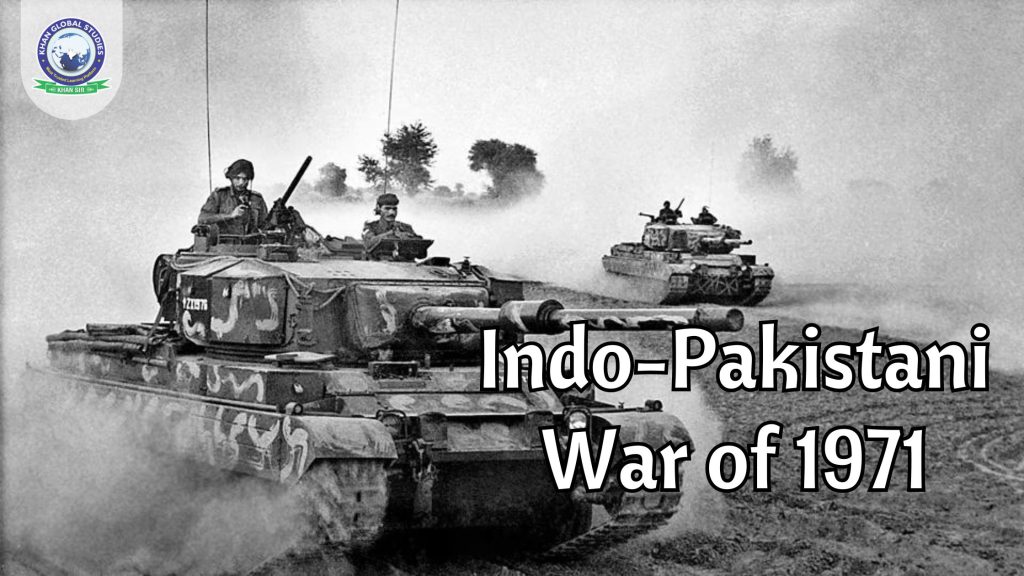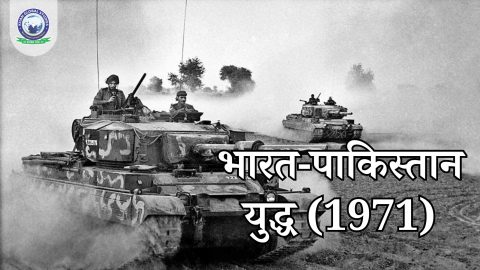The Indo-Pakistani War of 1971 is one of the most significant conflicts in South Asia, shaping the geopolitical landscape of the region. This war fought between India and Pakistan was crucial in the creation of Bangladesh, formerly known as East Pakistan. The conflict involved intense military engagement, diplomatic manoeuvring, and a humanitarian crisis that attracted international attention.
Background and History
Partition and Growing Tensions
The roots of the 1971 war are linked to the partition of British India in 1947, which created the independent nations of India and Pakistan. Pakistan was geographically and culturally divided into two distinct regions: West Pakistan (modern-day Pakistan) and East Pakistan (now Bangladesh). The physical distance, cultural differences, and economic disparity between these regions created deep tensions.
Political Discontent in East Pakistan
By the late 1960s, political discontent in East Pakistan had reached a boiling point. Despite having a greater population, the region felt marginalized politically and economically by the ruling authorities in West Pakistan. The situation worsened after the 1969 general elections, where the Awami League, a political party advocating autonomy for East Pakistan, led by Sheikh Mujibur Rahman, won a majority. However, the ruling regime in West Pakistan, led by President Yahya Khan, was not ready to transfer power, leading to heightened tensions.
The Spark: Operation Searchlight
On March 25, 1971, the Pakistani army launched Operation Searchlight, a brutal crackdown on the independence movement in East Pakistan. The operation was intended to suppress dissent but resulted in large-scale atrocities, including mass killings, rapes, and the displacement of millions of people. The humanitarian crisis drew global condemnation and sparked a full-blown independence struggle in East Pakistan.
Causes of the Conflict
- Human Rights Violations: The severe human rights violations committed during Operation Searchlight were a major trigger for the war. The large-scale atrocities led to a refugee crisis, causing millions of Bengalis to flee to neighbouring India. India, led by Prime Minister Indira Gandhi, faced enormous pressure due to the influx of refugees and the humanitarian crisis on its borders.
- India’s Strategic Interests: India had strategic and moral reasons to intervene. The refugee crisis affected India’s economy, and there was growing concern that the conflict could further destabilize the region. Additionally, supporting East Pakistan’s independence was linked to India’s long-term strategic interests in weakening Pakistan.
- International Dynamics: The global geopolitical scenario also played an important role. While India had the tacit support of the Soviet Union, Pakistan had the support of the United States and China, which complicated the situation. Cold War dynamics influenced the decisions taken by both India and Pakistan during the conflict.
Indo-Pakistani War: Major Events
- Military Engagements: The war officially began on December 3, 1971, when Pakistan launched air attacks on Indian airbases, marking the beginning of hostilities. India responded immediately by launching a multi-pronged attack on both the eastern and western fronts. The Indian Army advanced rapidly into East Pakistan in coordination with the Mukti Bahini (Bengali Guerrilla Army).
- Naval and Air Dominance: India’s naval and air superiority played a key role in the conflict. The Indian Navy effectively blockaded East Pakistan, cutting off supply lines and weakening the Pakistani Army. Meanwhile, the Indian Air Force conducted strategic bombing, weakening the Pakistani military infrastructure.
- Fall of Dhaka: The war reached its climax on December 16, 1971, when the Pakistani Army in East Pakistan, led by Lieutenant General A.A.K. Niazi, surrendered to the Indian Army and Mukti Bahini in Dhaka. This surrender marked the end of the war and the creation of the independent nation of Bangladesh.
Results and Consequences of War
- Creation of Bangladesh: The most important result of the war was the birth of Bangladesh. The people of East Pakistan finally gained independence after years of struggle and immense suffering, resulting in the establishment of Bangladesh as a sovereign nation.
- Effects on Indo-Pakistani Relations: The 1971 war deeply affected Indo-Pakistani relations. The decisive Indian victory and the fragmentation of Pakistan led to a long-standing animosity between the two countries. The war also strengthened India’s position as a major regional power in South Asia.
- Geopolitical Shifts: The war caused significant geopolitical shifts. The United States and China, both of which had supported Pakistan, were forced to reevaluate their South Asian policies. Meanwhile, the Soviet Union’s support for India strengthened Indo-Soviet relations, which influenced regional dynamics for years to come.
Conclusion
The Indo-Pakistani War of 1971 was a defining moment in South Asian history. It not only reshaped the political map of the region but also highlighted the enduring complexities of India-Pakistan relations. The war underscored the importance of addressing political grievances and the dangers of ignoring the aspirations of distinct cultural and ethnic groups within a nation. As we reflect on the events of 1971, it is important to remember the lessons learned and the impact of this conflict on the lives of millions.




